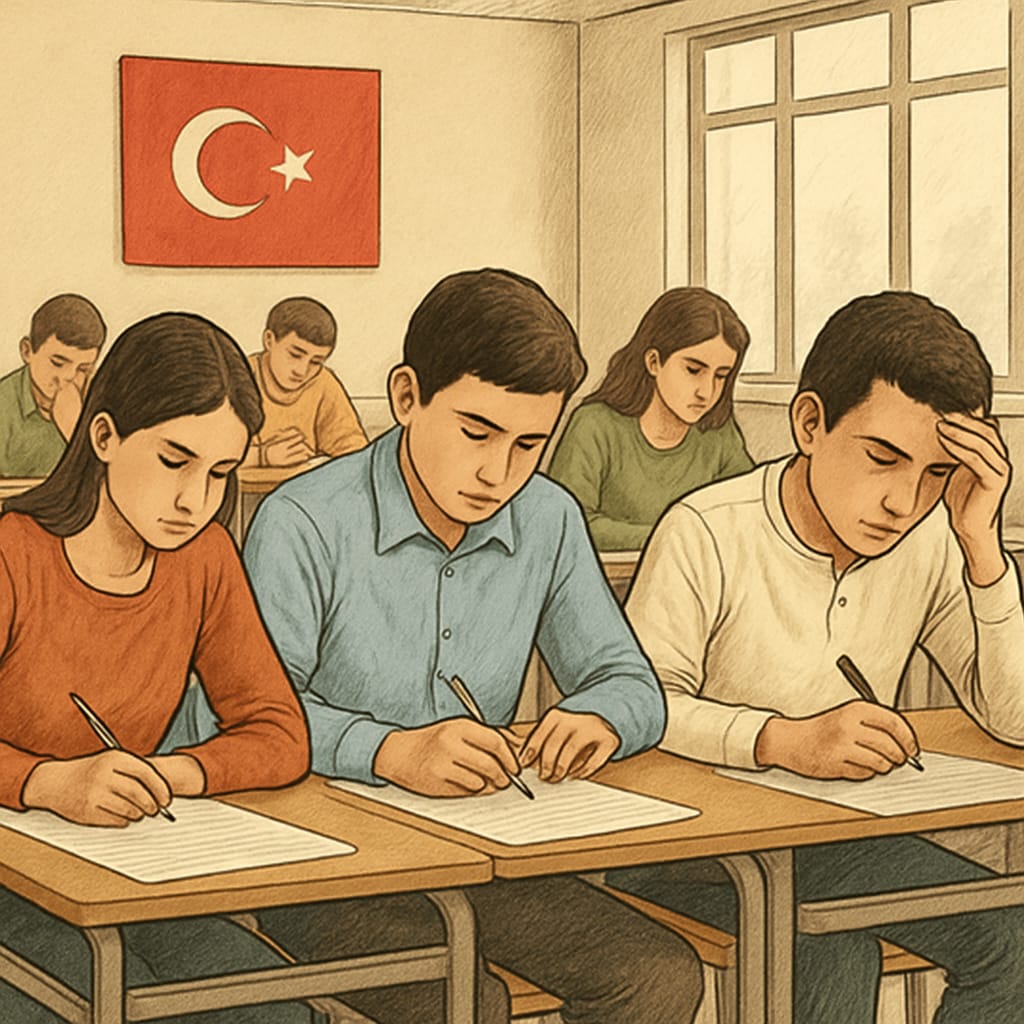Turkey’s education system has long been dominated by a centralized examination model, where students face immense pressure to succeed in high-stakes tests. This structure has drawn criticism for prioritizing rote learning over fostering critical thinking and creativity. On the other hand, the UK’s A Levels offer a flexible approach to assessing students’ abilities, emphasizing depth of knowledge and individual strengths. By examining these two systems, this article explores how Turkey could draw inspiration from A Levels to address issues such as exam pressure and promote a more holistic educational experience.
Understanding Turkey’s Centralized Examination System
Turkey’s education system relies heavily on a centralized examination process, particularly the High School Entrance Exam (LGS) and the University Entrance Exam (YKS). These exams determine students’ academic futures, creating a culture where test preparation overshadows other aspects of learning. The system emphasizes memorization and standardized testing, often at the expense of skills like creativity, problem-solving, and independent thinking.
Moreover, the pressure to perform well in these exams has a significant psychological impact on students. According to Education in Turkey on Wikipedia, students often start preparing for these tests years in advance, sacrificing extracurricular activities and personal interests. This approach limits opportunities for students to explore diverse talents and develop a well-rounded skill set.

How A Levels Foster Holistic Development
In contrast, the UK’s A Levels system offers a more flexible and student-centered approach. Students can choose subjects based on their interests and career aspirations, allowing for deeper engagement and specialization. This flexibility not only alleviates stress but also encourages students to take ownership of their learning journey.
Another key feature of A Levels is the variety of assessment methods. Unlike Turkey’s reliance on single, high-stakes exams, A Levels incorporate coursework, practical evaluations, and written exams. This diversified approach ensures a more comprehensive assessment of students’ abilities, balancing academic knowledge with practical skills.

Additionally, A Levels are internationally recognized and provide a clear pathway to higher education both in the UK and abroad. This global perspective prepares students for a competitive, interconnected world, equipping them with skills that extend beyond the classroom.
Bridging the Gap: Recommendations for Turkey
To reform its education system, Turkey could adopt several strategies inspired by the A Levels model:
- Increase subject flexibility: Allow students to choose subjects aligned with their interests and career goals, fostering engagement and reducing exam-related anxiety.
- Diversify assessment methods: Incorporate coursework, projects, and practical evaluations alongside exams to provide a more balanced evaluation of student performance.
- Promote extracurricular activities: Encourage participation in arts, sports, and other non-academic pursuits to support holistic development.
- Provide mental health support: Offer resources and counseling to help students manage exam-related stress and maintain well-being.
Implementing these changes would require systemic adjustments, including teacher training, curriculum development, and investment in infrastructure. However, the long-term benefits—reduced exam pressure, improved student outcomes, and a more adaptable workforce—make such reforms worthwhile.
The Future of Education in Turkey
Turkey’s centralized examination system has shaped generations of students, but its limitations are becoming increasingly apparent. By studying models like the UK’s A Levels, Turkey has an opportunity to transform its education system into one that values creativity, critical thinking, and individuality. Reform is not without challenges, but with a strategic and student-centered approach, Turkey can unlock the full potential of its youth and pave the way for a brighter future.
As Turkey navigates this journey, other nations can also learn from this comparative analysis, emphasizing the importance of adaptable, inclusive, and forward-thinking education systems.
Readability guidance: This article uses concise paragraphs, active voice, and clear transitions to enhance readability. Key points are summarized in a list for better comprehension, and imagery complements the text to provide visual context.


